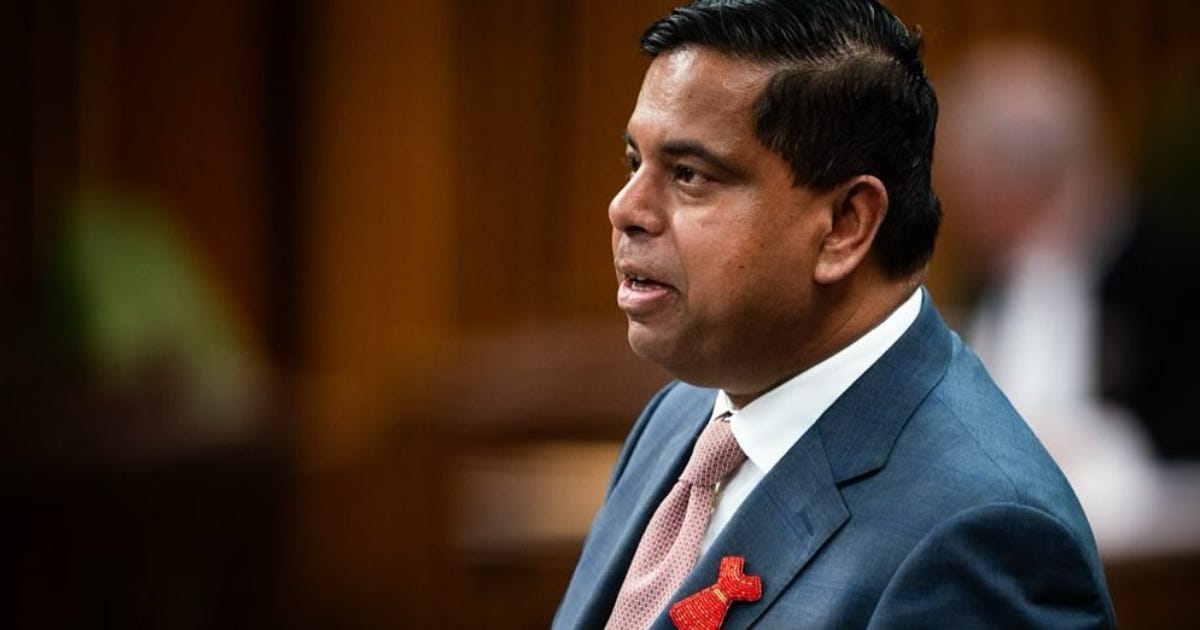New Liberal border bill proceeds after original faced heavy criticism
After intense backlash from opposition parties, privacy lawyers, and civil-liberties groups, the Liberal government has unveiled a completely revamped version of its Strong Borders Act.
After intense backlash from opposition parties, privacy lawyers, and civil-liberties groups, the Liberal government has unveiled a completely revamped version of its Strong Borders Act, pushing ahead with sweeping border security reforms.
On Wednesday, Public Safety Minister Gary Anandasangaree introduced Bill C-12, omnibus legislation intended to replace his now-paused Bill C-2, which was tabled in June and quickly condemned across party lines as overreaching and unenforceable.
The new bill, said Anandasangaree, “modernizes and clarifies” enforcement powers while maintaining Canada’s commitment to combat transnational organized crime, fentanyl trafficking and human smuggling.
Bill C-2, commonly referred to as the Strong Borders Act, was the first bill tabled by the Carney government.
Conservative House Leader Andrew Scheer called it “embarrassing” that Anandasangaree was replacing the Carney government’s first bill.
When asked in the House why he was replacing the bill rather than amending it, Anandasangaree said changes would have been “quite cumbersome,” likely a reference to the bill’s immense size and scope.
The original Strong Borders Act was more than 130 pages long, comprised 16 parts and sought to amend nearly 20 different laws. It proposed broad changes to the Customs Act and Immigration and Refugee Protection Act, granting the Canada Border Services Agency expanded powers to pursue trade-based money-laundering cases, mandate data-sharing between border and intelligence agencies and compel technology companies to assist police with investigations.
On the immigration side, C-2 would have barred anyone in Canada for more than a year from receiving refugee hearings, applied retroactively to entrants after June 2020 and allowed CBSA officers to issue removal orders without full Immigration Division proceedings. Many of these measures appear in Bill C-12 with only slight modifications.
The new legislation omits several controversial provisions from C-2, including sweeping law-enforcement powers to open mail or compel service providers to provide subscriber information without a warrant. The previous cap on cash payments or donations exceeding $10,000 has also been removed.
Anandasangaree said the government remains committed to some elements stripped from C-2 but is proceeding with C-12. According to unnamed sources cited by the CBC, the plan is to advance both bills on separate legislative tracks, with the less controversial C-12 moving ahead first.
Opposition members and civil liberties groups remain critical. “It’s outrageous that the government has refused to fix anything and instead just split it into two separate bills,” said Tim McSorley, national co-ordinator of the International Civil Liberties Monitoring Group.
“Both bills need to be withdrawn,” McSorley said in an interview with the CBC.
The rollout represents another challenge for Anandasangaree, who is already facing calls for his resignation over alleged links to a designated terrorist organization and a recorded conversation in which he questioned his own government’s gun confiscation plan and joked with a tenant about “bailing” him “out of jail” should he be arrested for refusing to hand over his firearms.



Get rid of this disgraced Minister and all of his disgraced legislation along with him. We do not need another Liberal autocrat - and especially one so untethered from reality who files legislation that is so bad even he can't even defend it. Canadians do not have to "stand on guard" to prevent our own gov't from passing repeated legislation that is determined to turn good, law-abiding citizens into criminals for their opinions while, at the same time, repeatedly releasing actual criminals to bring crime and chaos to our streets.
I have been following this joker on numerous issues, and in my opinion he he totally devoid of any common sense or decency. Frankly, he is simply a toadie of Carney's, and is functioning dangerously for the betterment of Canada. This guy needs to get out of politics altogether, one way or another!